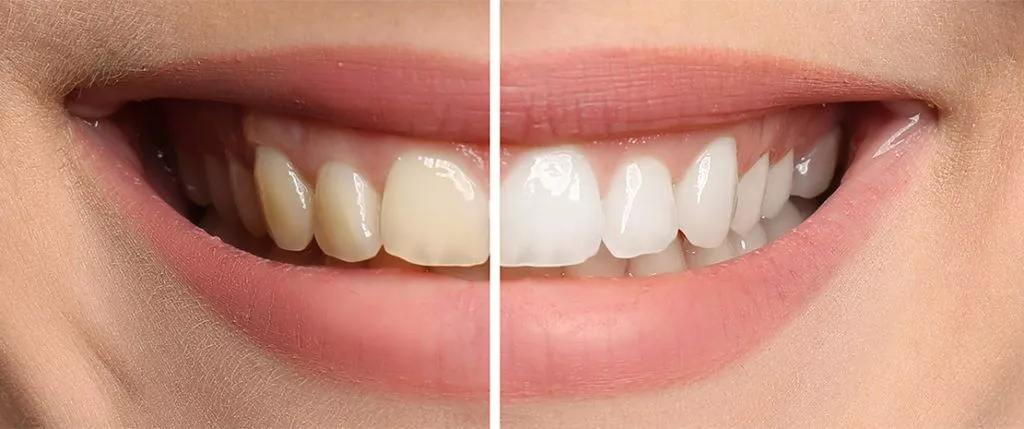
Table of Contents
Stains on your teeth can take away the beauty of your smile and also shake your confidence. Teeth stains are very common, and nearly every other person suffers from them at some age, but they can do more damage than you think. Too many stains can lead to other teeth and gum problems, such as tooth decay and gum infections. So, it’s not just your appearance at stake. It is your overall health. Bad dental habits such as not maintaining oral hygiene and consuming too many coloured products are often found to be one of the primary causes of gastrointestinal problems. Many of these problems can become chronic and can change your lifestyle forever. It can also lead to the need for tooth replacement, and no matter what anyone tells you, an artificial tooth can never be the same as a natural one. Depending on the type of stains, you can do many things to prevent and eliminate them. However, their removal greatly depends on what caused them in the first place. The problem is that there are countless reasons for stains, which may vary from person to person. Let us present some of the more common causes and how to deal with them.
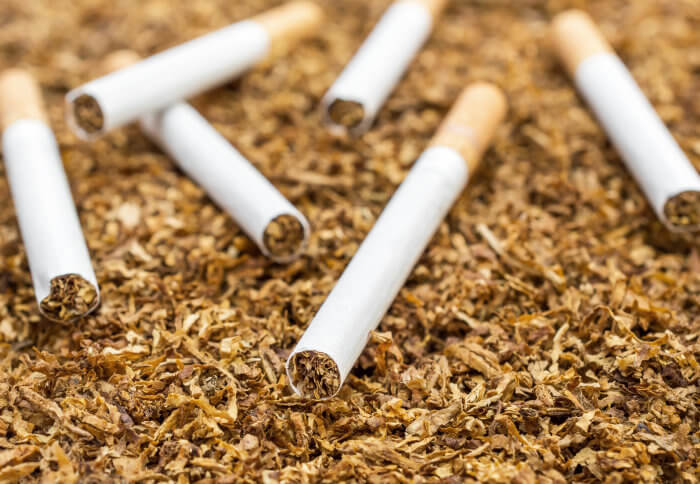
Tobacco
Smokeless tobacco, cigars, cigarettes, chewable tobacco, hookah, and nearly all other tobacco products will stain your teeth. If you are a regular smoker, they can become entirely stained. Tobacco stains are probably the hardest to remove. They require hard work and patience. They also demand that you don’t use these products again because the stains will come back.
Remedy
Although you will find many dental products, including toothpaste, that claim to eliminate tobacco stains and make your teeth completely white, removing these stains requires professional help. They require teeth polishing as these stains go deep into the tooth enamel with time.No, a known home remedy can eliminate them, and you need a dentist.

Food & Drinks
Food items like pasta sauces, sports drinks, red wine, tea, and coffee contribute to staining your teeth. The stains usually formed by these items range from light to medium brown.
Remedy
Restricting your diet is the first step towards eliminating them. However, that may not be possible for many people. Regular brushing, including dry and wet brushing, can help you lighten them up. Some people use a mixture of baking soda and water, while others use equal parts of baking soda and salt. These remedies should be tried along with your regular brushing routine to be more effective.
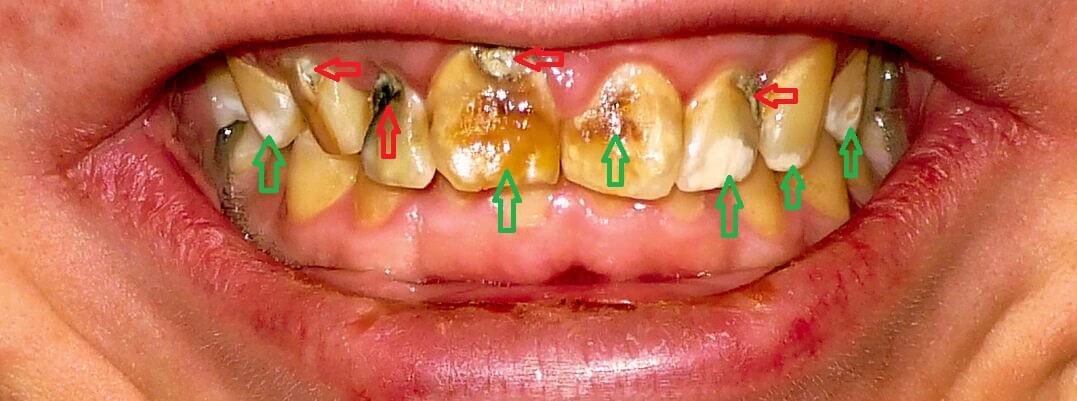
Severe Fluorosis
There are many minerals in our bodies, and fluoride is one of them. High fluoride ingestion through drinking water or if you already have the mineral in you in high quantities can cause brown stains on your teeth. Fluorosis is not even evident until your teeth enamel starts showing severe irregularities.
Remedy
Depending on the severity of fluorosis, your dentist will carry out restorative and cosmetic activities such as aesthetic veneers. You may also need tooth crowns.
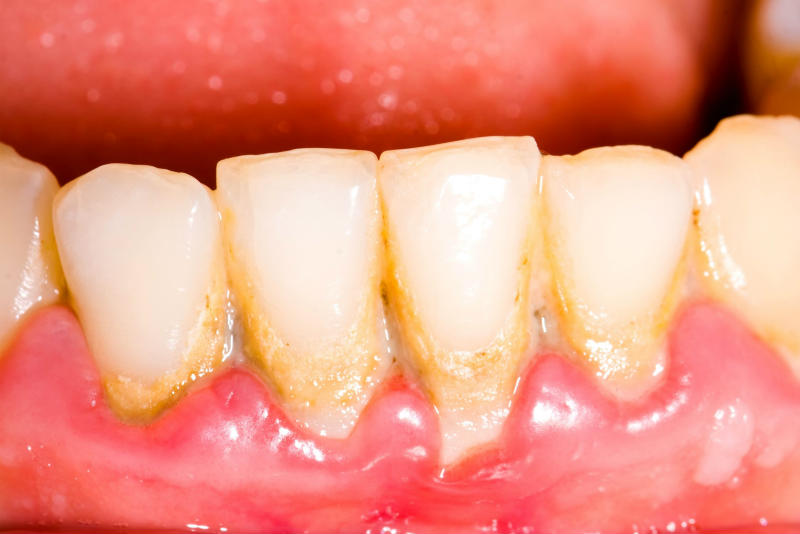
Tartar Build-up
Improper or infrequent brushing, ignoring your teeth, smoking, and eating can increase tartar build-up. It is porous and therefore attracts discolouration, stains, and food particles. A small build-up is natural, but if you can see it, then you need to do something about it.
Remedy
You can start by brushing correctly. Use proper dental mouthwash. Clean your teeth with baking soda and salt. If the build-up does not reduce, you need professional cleaning.
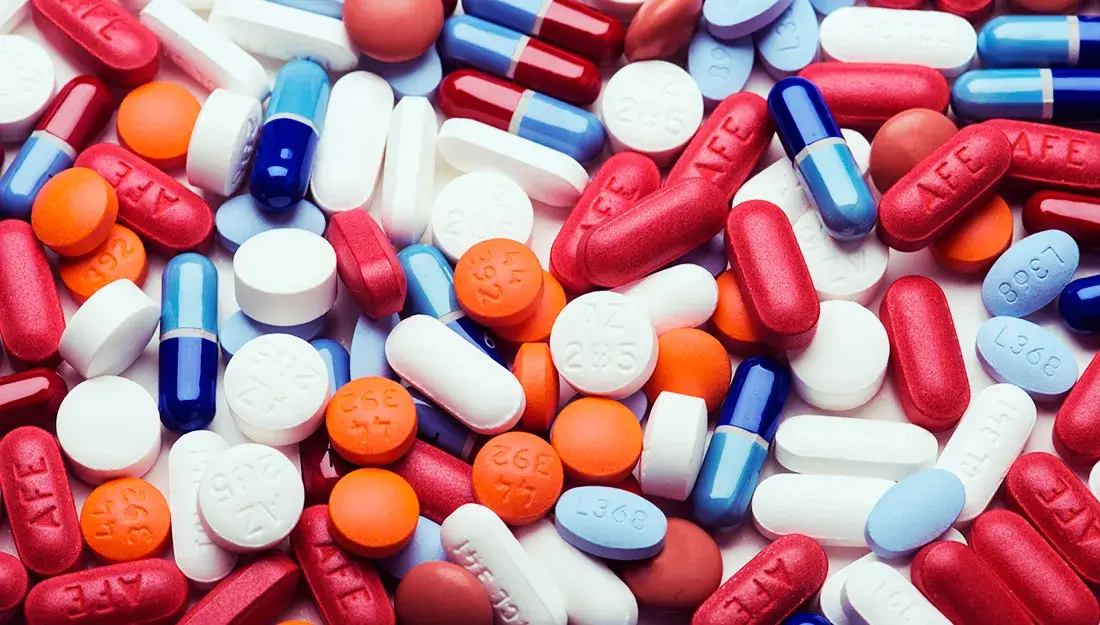
Medications
Certain medicines can cause teeth staining. This is especially true for coloured and liquid medication. Chlorhexidine which is often used for treating gum diseases, can stain your teeth if it is used for more extended periods.
Remedy
Many of these stains are temporary and will be eliminated once you stop using medicines.
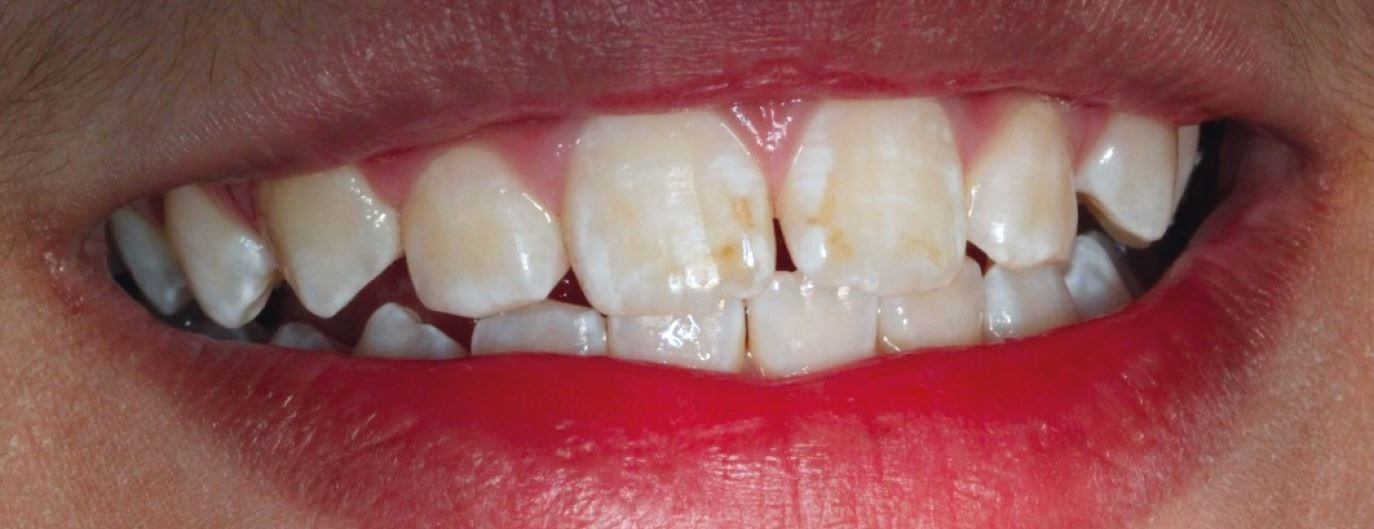
Enamel Hypoplasia
A deficiency of minerals and vitamins can cause enamel hypoplasia. Medical syndromes can also be a cause. Extreme conditions can cause permanent tooth changes and make your teeth weak.
Remedy
There is no known home remedy for hypoplasia; you will need a veneer or crown in severe cases.

Celiac Disease
Celiac disease can cause several health complications, including gluten intolerance. If you are witnessing regular changes in your teeth, it is usually a sign of celiac disease. The disease cannot be diagnosed by a dentist, and you need to see a physician.
Remedy
You need to see a doctor if you suffer from gastro distress after eating gluten-rich foods.

Pool Or Lap Swimming
Chlorine in swimming pools may also cause staining if you are a regular swimmer. If your kids are regular swimmers, you will see these stains.
Remedy
Rinsing and cleaning your mouth with clean water and brushing your teeth can prevent these stains.

Supplements and Vitamins
If you are consuming vitamins and supplements, you may notice black stains. This is very rare and is not usually harmful.
Remedy
These stains can be removed by regular cleaning. However, if you feel there are more resistant, you can visit your dentist for polishing.
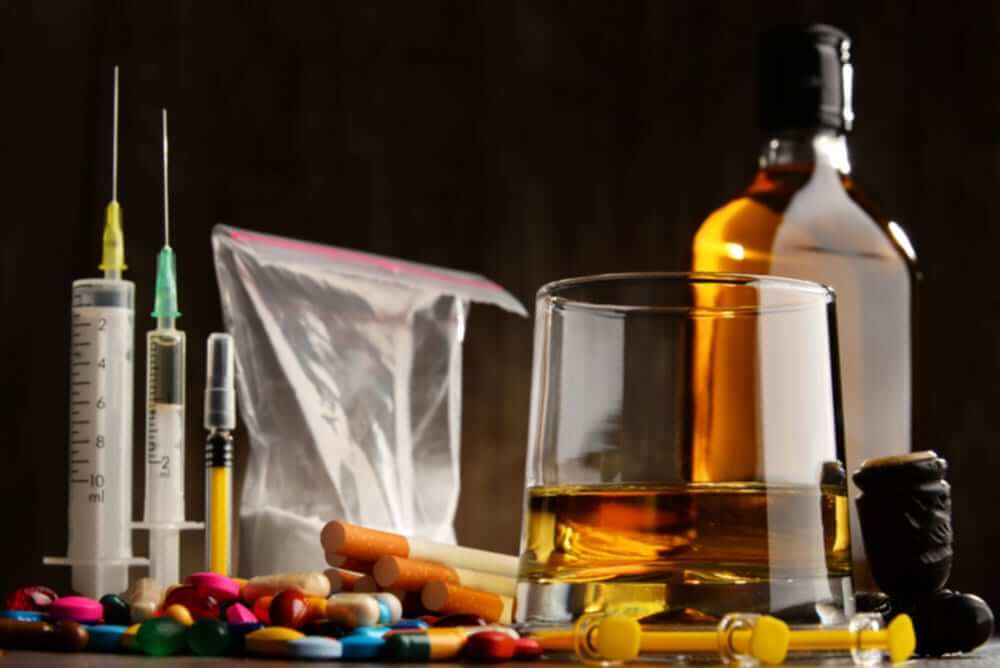
Recreational Drugs
Recreational drugs such as marijuana will cause greenish stains on your teeth. They will be more visible on your upper teeth. The more frequently you use such drugs, the darker the stains will get. These drugs also increase the risk of gum diseases and tooth decay.
Remedy
The first thing is to stop using such drugs as they harm your overall health, except for medically altered drugs. Maintain your hygiene by regular brushing and using mouthwash.
Prevention of Brown Stains
They say prevention is better than cure. Nothing could be more accurate about your gum and teeth health than this quote. Ignoring your oral hygiene can lead to gum and tooth problems and other medical conditions. Your teeth play a vital role in gut health. Preventing stains improves your oral health and protects you from developing different diseases. We have already discussed the most common reasons that cause stains. Here are some tips to prevent stains.
- Stop using tobacco products and recreational drugs.
- Bush your teeth before breakfast and after dinner.
- Floss your teeth before going to bed.
- Regularly rinse your mouth, especially after having coloured drinks.
- Get a detailed teeth inspection at least twice a year.
- Use a straw for drinking coloured drinks.
- Use mouthwash.
- Use quality toothpaste.
- Get yourself a good electric toothbrush.
- Drink loads of water every day.
When You Should See a Dentist?
If you witness a consistent build-up of stains and tar on your teeth despite taking all the above precautions, you should see a dentist. Seeing a dentist regularly, at least once every six months, will prevent many diseases and ensure that your stains are just ordinary and do not reflect a medical condition. If you are also experiencing tooth pain with colours, seeing a dentist will prevent further damage to your teeth. Regular dentist visits can help your dentist identify if there is any serious problem with your teeth and gums. A professional cleaning twice a year will eliminate brown stains and improve oral and gut hygiene. Even if you are facing no apparent oral issues, a visit to a dentist will reassure you of your oral health. You should visit your dentist if you have the below-mentioned problems:
- Visibly dark stains and lots of them which do not seem to lighten even after maintaining proper oral hygiene.
- Tooth or gum pain.
- Build up tartar on your gums and teeth.
- Fragmentation of any of your teeth.
- Blood from your gums or teeth.
- Gastrointestinal infections or diseases are emanating from poor oral hygiene or condition.
- Swollen and painful cheeks.
- Pain while chewing
- Trouble drinking cold or hot drinks.
- Tooth chipping or removal of tooth enamel.





